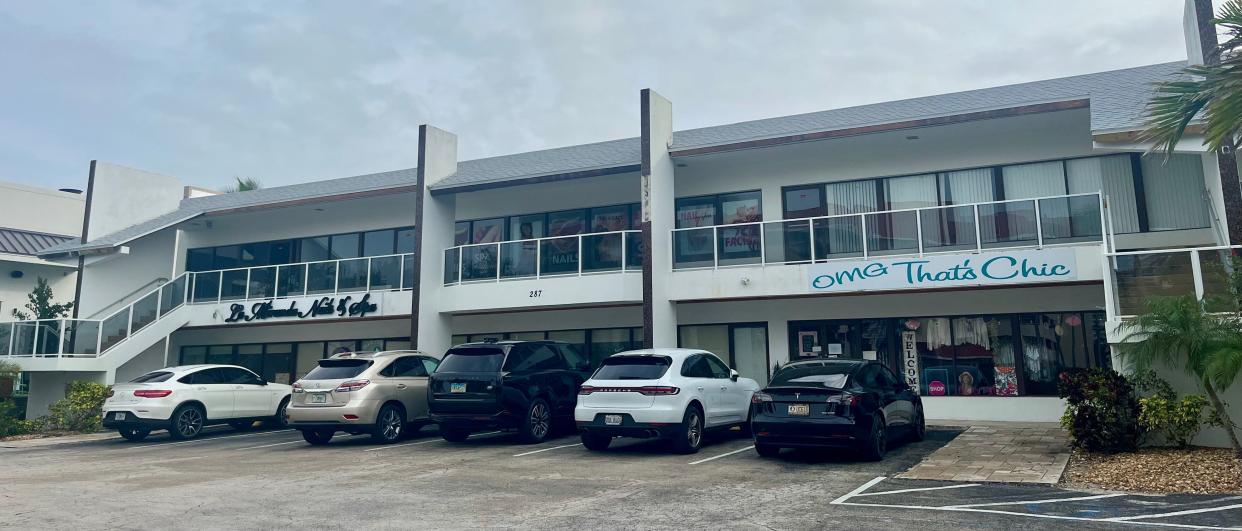Marco Island City Council approves affordable housing plan for upper-level offices

Commercial building owners on Marco Island now have an option for their unused office spaces that could provide housing for employees on the island in need of an affordable place to live.
Marco Island City Council on Monday night approved a conditional use addition to its Land Development Code that creates a process for multi-level commercial-building owners to convert offices on upper levels into apartments for affordable housing as defined by the Florida Legislature.
Planning Manager Mary Holden estimates there are 2,450 available dwelling units, the majority of which are in the existing commercial development area of the island, with about 450 in residential zoning, said Councilman Rich Blonna.
City planners have been working on a proposal since last summer to help employers who struggle to find employees because they can't afford to live on Marco Island. After working with the City Planning Board, staff developed a strict conditional use process, which many say only scratches the surface of the problem. The planning board recommended approval by a 6-1 vote.
What is affordability?
Rents across the country have increased more than 24% since 2020, according to the U.S. Government Accountability Office, while inventory of homes has been decreasing dramatically. Marco Island doesn't have much land for building communities and condos that might allow for affordable housing units in them; the conversion of offices is one way to help with affordable housing, Holden has said.
Under the state definition "affordable” means that monthly rents or monthly mortgage payments including taxes, insurance, and utilities do not exceed 30 percent of that amount which represents the percentage of the median adjusted gross annual income for the households.
"We don’t have many businesses with offices above them," Councilman Darrin Palumbo said. "At best we’ll barely chip away at this."
Holden agreed.
"I would be surprised if we see any applications but at least we’re providing the avenue," she said.
Strict rules for converting offices to apartments
Along with having to meet existing parking, building, fire, and floodplain regulations, applicants also will have to file a 30-year deed restriction, have a pre-application meeting with Growth Management staff, hold a Neighborhood Information Meeting and submit a conditional-use permit application.
Applications to remodel upper levels of commercial buildings to apartments must include a floor plan showing existing uses and a floor plan of the proposed layout of the workforce/affordable housing units and their square footage. Commercial use must be at least 50% of the project. The proposed adaptive reuse also must meet minimum square footage requirements of 450 square feet for efficiency and one-bedroom units; 650 square feet for two-bedroom units; and 900 square feet for three-bedroom units.
Maximum density of residential units developed cannot exceed eight units per acre for Village Commercial, or 12 units per acre for Community Commercial, Heavy Commercial or Town Center/Mixed Use.
Joseph Oliverio, who owns three restaurants on Marco Island, all on Collier Boulevard, told the Planning Board in January that he purchased a building between the restaurants to convert upstairs offices to affordable apartments for his employees.
"We need to do something," Oliverio said. "I happened to have an opportunity to create workforce housing that’s close to my business. But many people can’t."
He might not go through with it though because of the required deed restriction. Oliverio had planned to go through the mixed-use permitting process, partly because "I would never want to deed restrict my property."
Planning staff told him his building isn't in the right commercial overlay to allow that, which is why the new conditional use was created.
A required 30-year deed restriction on converted properties would mean the apartments wouldn't be allowed to go to market value rates for those three decades.
Councilman Joe Rola, and residents at previous meetings, expressed concerns that the new conditional use will allow for more people on the island than the city's charter allows.
Holden assured him that the change doesn't allow for more density.
"We’re roughly at 3,000 density units remaining, Holden said. "This is where we want to be. The city will get to that density for those various districts in the future."
"So it seems to me, this is not a worry that we’re going to go over, that there’s not going to be enough available density in the zones to accommodate the limited number of affordable housing that is going to be built."
Council members and planning board members have asked city staff to create a tracking system so that when they ask exactly where the density units are located, they can tell them.
"We have 3,000 units cushion," Blonna said. "We have time to work this out. … Mary has promised me we will develop a tracking system. It’s going to happen."
More: Marco Island continues affordable housing discussion: What to know
More: Collier commission advances affordable housing project that would tap taxpayer money
This article originally appeared on Naples Daily News: Marco Island approves affordable housing in offices over commercial

